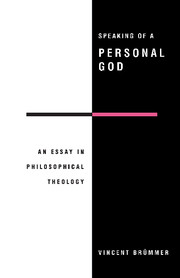5 - Can God act in the things we do?
Published online by Cambridge University Press: 14 December 2009
Summary
DOUBLE AGENCY: FARRER AND WILES
In section 2.5 we argued that using the conceptual model of personal relations in thinking about our relationship with God entails the claim that both God and human beings are personal agents in relation to each other, and therefore both free in the sense of being able to take the initiative with regard to their own actions in relation to each other. In chapters 3 and 4 we discussed two problems that arise from these claims about human and divine freedom respectively. In this chapter we will examine the nature of the relation between divine and human agency within such a personal relationship. If both God and ourselves are personal agents in relation to each other, how are divine and human agency related?
A central tenet of Christian belief is the claim that God acts in the world in a variety of ways in order to realize his purposes. Christian believers usually also hold that this divine agency is in principle indirect: God is always a primary cause acting by means of secondary causes and never intervening directly on the level of the secondary causes. Thus we can never ‘treat God as just one more causal agent among others in the world’. In this way divine agency is claimed to take effect in and through the natural order and also through the acts which human agents perform. In this chapter we will limit ourselves to the latter kind of ‘double agency’ (i.e. that involving the acts of human agents), since this is especially relevant for our inquiry into the relation between divine and human agency.
- Type
- Chapter
- Information
- Speaking of a Personal GodAn Essay in Philosophical Theology, pp. 108 - 127Publisher: Cambridge University PressPrint publication year: 1992



